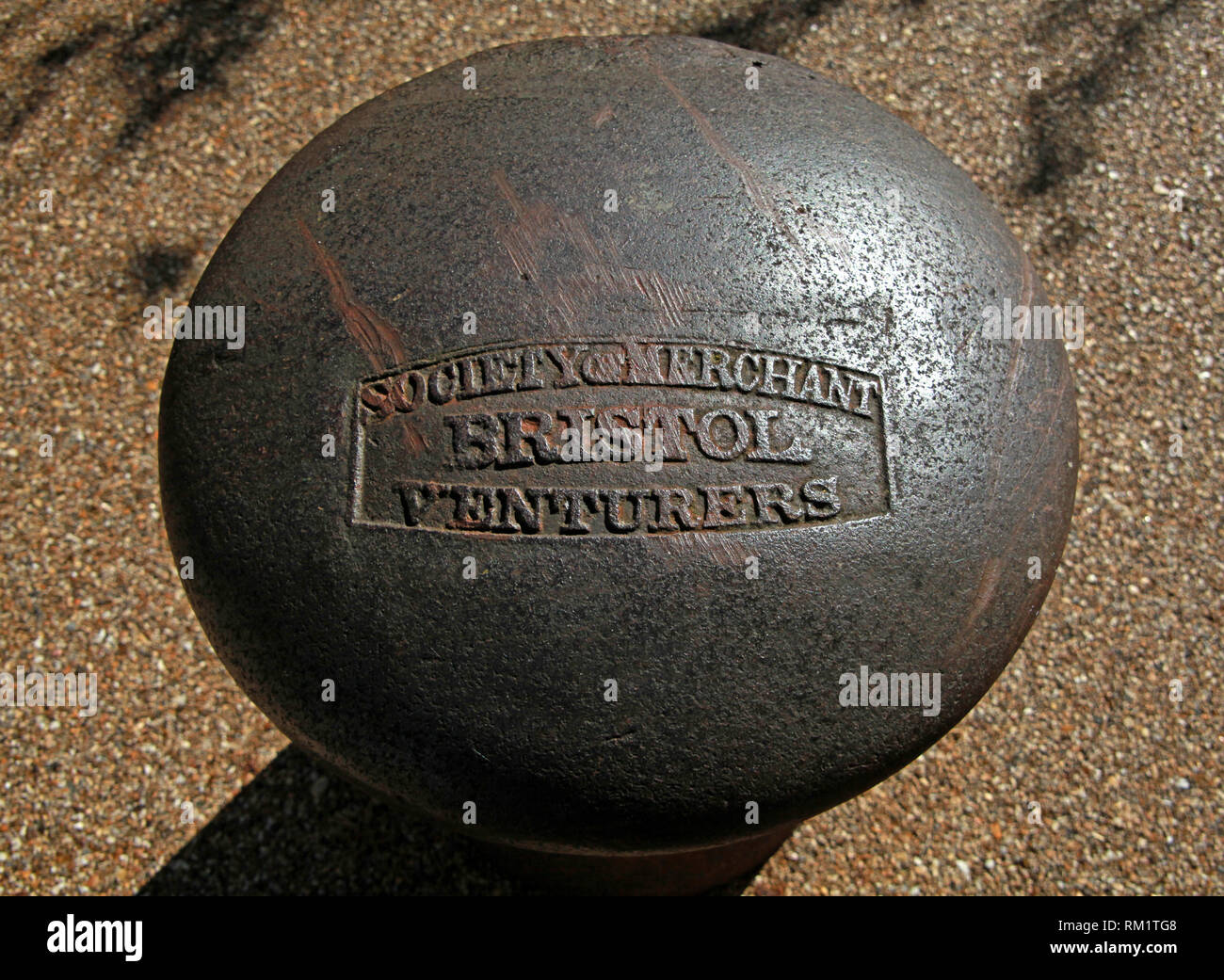Bristol Society of Merchant Venturers, mooring peg, Port of Bristol, Bristol docks, South West England, UK

Image details
Contributor:
Tony Smith / Alamy Stock PhotoImage ID:
RM1TG8File size:
50 MB (2.5 MB Compressed download)Releases:
Model - no | Property - noDo I need a release?Dimensions:
4884 x 3576 px | 41.4 x 30.3 cm | 16.3 x 11.9 inches | 300dpiDate taken:
3 June 2015Location:
Merchants Hall, Clifton Down, Bristol BS8 3NHMore information:
The Society of Merchant Venturers is a charitable organisation in the English city of Bristol. The society can be traced back to a 13th century guild which funded the voyage of John Cabot to Canada that marked the origins of the British Empire. The society its first Royal Charter in 1552 and for centuries had almost been synonymous with the government of Bristol, especially Bristol Harbour. In recent times, the society's activities have centred on charitable agendas. The Society played a part in the development of Bristol, including the building of Clifton Suspension Bridge and the Great Western Railway. It also influenced the development of educational institutions in Greater Bristol, including University of Bristol, University of the West of England, University of Bath, City of Bristol College, Colston's Girls' School and Merchants' Academy. A Guild of Merchants was founded in Bristol by the 13th century, and swiftly became active in civic life. It funded John Cabot's voyage of discovery to Newfoundland in 1497. The society in its current form was established by a 1552 Royal Charter from Edward VI granting the society a monopoly on Bristol's sea trade. The society remained in effective control of Bristol's harbour until 1809. Further charters were granted by Charles I, Charles II and Elizabeth II. The society's members were active in the English colonisation of North America, helping to establish the Bristol's Hope and Cuper's Cove settlements in Newfoundland. In 1694, the Merchant Venturers Society petitioned parliament against the monopoly held by the Royal African Company in the slave trade, leading to the ending of this monopoly in 1698. During the eighteenth century one quarter of the individual members of the Society were to be directly involved in the slave trade with such prominent Bristol slave traders as Michael Becher, John Duckenfield, and Isaac Hobhouse